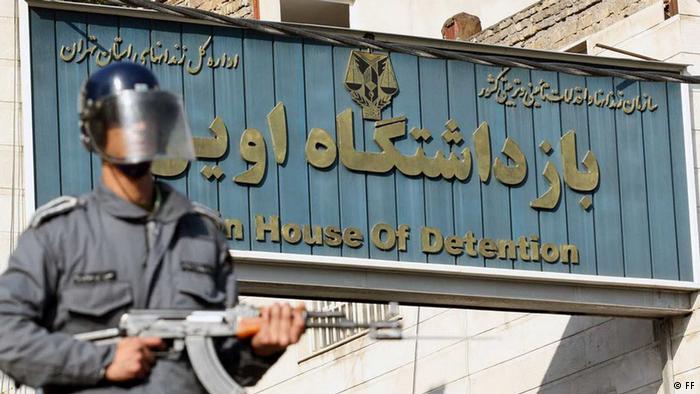
by Atousa Pilger
While Kavous Seyed-Emami, a prominent Canadian-Iranian environmentalist and academic, was not the first to die under suspicious circumstances in prison during recent weeks, it wasn’t until his death that President Hassan Rouhani appointed a committee to probe what he described as “regrettable incidents” in Iran’s prisons.
Officials said Seyed-Emami committed suicide in Tehran’s notorious Evin Prison on February 9th, seventeen days after his arrest. According to his family, due to pressure by authorities, Seyed-Emami was buried quickly, with no independent autopsy.
Vahid Heidari and Sina Ghonbadi, who participated in the nationwide unrest last month were also said to have committed suicide in prison.
These deaths have sparked public outrage. Many Iranians, including members of parliament, as well as several celebrities, have questioned the official narrative. Numerous human rights organizations have called on the Iranian government to investigate the deaths. Mahmoud Sadeghi, Tehran’s reformist MP, tweeted on Tuesday, “According to the relatives of one of the detainees who died in jail, he had told his family during a phone conversation [prior to his death] that the authorities had forced him and other prisoners to take pills that made them sick.”
Holly Dagres wrote an article for The Atlantic Council, saying that Iran has a history of suspicious deaths of people held in custody. Many instances are outlined below that show that under Iran’s theocratic regime, these suspicious deaths are not an uncommon occurrence.
For example, in the late 1990s, through the work of investigative journalists, the Intelligence Ministry was exposed for involvement in what newspapers called the “chain murders.” The resignation of Qorbanali Dorri Najafabadi, a minister chosen by Supreme Leader Ayatollah Ali Khamenei, was forced, and the murders stopped. Additionally, the deputy intelligence minister, Saeed Emami — one of ten agents arrested and charged with operating the death squads — “committed suicide” in custody.
Again in 2009, deaths in detention became a major issue. After Iranians took to the streets denouncing election results that gave Mahmoud Ahmadinejad a second term as president, security forces arrested protesters and sent them to Evin and Kahrizak prisons in Tehran. Following reports of abuse, Green Movement leader Mehdi Karroubi wrote a letter reporting allegations of rape and sodomy, and called for an investigation. Officials denied the charges, but eventually admitted that three protesters had been beaten to death. Initially they had claimed the three had committed suicide, or had died from meningitis.Twelve officers and guards were convicted by a military court. The prosecutor-general of Tehran, Saeed Mortazavi, was replaced and banned from holding state office, but was acquitted of being “an accomplice to murder.”
More recently, the attorney investigating the death of detainee Vahid Heidari last month, Mohammad Najaf, was detained. Najaf had questioned the suicide of Heidari, saying, “This young man was a protester. They arrested him and then they beat and killed him. Now they want to destroy his reputation.”
Seyed-Emami and seven of his colleagues are accused of passing information to the CIA and Israeli Mossad on Iran’s missile bases through their work on the endangered Asiatic cheetah. They are said to have been arrested by the intelligence arm of the Islamic Revolutionary Guard Corps (IRGC), who have arrested at least 30 dual nationals in the past two years.
With the blessing of Supreme Leader Khamenei , the IRGC intelligence arm emerged after the 1997 election and expanded in 2009. It has been reported that there is a growing rivalry between the IRGC and the Intelligence Ministry. According to the Center for Human Rights in Iran, the ministry would often times block an arrest “to prevent the IRGC’s Intelligence Organization from becoming more powerful and to reduce its dominating role in carrying out widespread arrests of political and civil rights activists.”
Tehran’s deputy parliamentary speaker Ali Motahari said last August, that espionage and counterespionage are the responsibility of the Intelligence Ministry and that the IRGC had no right to interfere in such matters. Motahari criticized Rouhani for giving Intelligence Minister Mahmoud Alavi a second term, saying he wasn’t the “appropriate man for the field of intelligence.” Motahari added, “We need a man who is capable of stopping other institutions and organizations from interference in the country’s intelligence [work].”
Many say that even with the criticism Rouhani has faced in the wake of the recent deaths in Iranian prisons, reform is unlikely, and that regime change is the only path to ameliorating injustices such as these suspicious deaths of detainees in Iran’s prisons.







